News
North Korea bans keeping dogs as pets unless they plan to eat them
Published
1 year agoon
By
Ekwutos Blog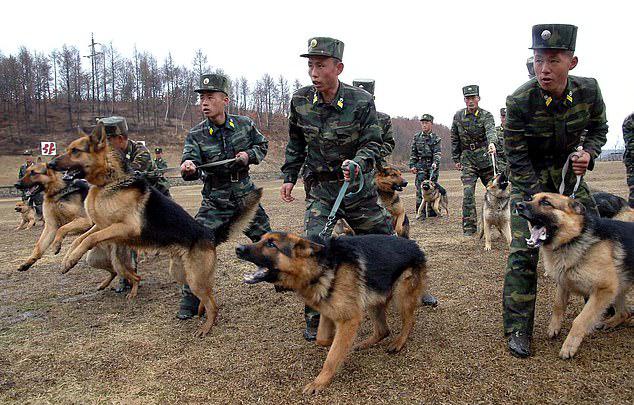
North Koreans have been banned from keeping dogs as pets except they are kept for meat and fur.
The ban was announced through the Socialist Women’s Union of Korea, according to a source in South Pyongan Province, which lies north of the capital.
Speaking to Daily NK, a newspaper in neighboring South Korea, the source listed the offences that could leave dog owners in violation of the government’s socialist ethos.
‘Treating a dog as a family member, who eats and sleeps with the family, is incompatible with the socialist lifestyle and should be strictly avoided,’ they said.
Dressing dogs in clothes, as exemplified by Western celebrities like Paris Hilton, was also singled out for condemnation.
The source continued: ‘The practice of dressing up dogs as if they were humans, putting pretty ribbons in their hair, wrapping them in a blanket, and burying them when they die is a bourgeois activity.
‘It’s one of the ways wealthy people waste money in a capitalist society.’
Describing the regime’s attitude, the source said: ‘Dogs are basically meat that’s raised outside in accordance with their nature and then eaten when they die.
‘Therefore, such behaviour is totally unsocialist and must be strictly eliminated.’
The regime also emphasised that ‘the purpose of raising dogs is to collect more furs’, the source said.
Rising levels of dog ownership – a practice described by the authorities as carrying ‘the stench of the bourgeoisie’ – reportedly motivated the new edict.
And while citizens were being given the chance to deal with the matter ‘quietly’, non-compliance could trigger a ‘mass movement’ to ‘eliminate’ the practice, the source said.
The custom of keeping pet pooches must ultimately die out, union members were warned.
One dog owner described by Daily NK was reduced to tears by the announcement.
‘What should I do with the dog I love so much? I can’t just kill it, and I can’t just abandon it,’ she reportedly said.
Greg Scarlatoiu, executive director of the Committee for Human Rights in North Korea (HRNK), which documents the atrocities of the Kim regime, said it was a ‘ludicrous’ decree.
He said: ‘The Kim regime criminalises normal behaviour, including visiting a relative in a neighbouring village without a travel permit, crossing the border without regime approval, or possessing a religious book.
‘The ongoing crackdown on pet dog ownership as non-socialist behaviour – this attempt to break the multi-millennial human-canine bond by ideological decree – is the epitome of ludicrous interdiction.’
According to the source in South Pyongan, the practice of keeping dogs as pets started small in North Korea in the early 2000s, when they were usually guard dogs.
They said: ‘There have always been families who had cats to catch mice, but there weren’t many families with dogs.
‘But that number has gradually increased, and recently there’s been a noticeable rise in foreign breeds of dogs such as Pomeranians and Shih Tzus, which used to be a rare sight in North Korea.’
You may like


US indicts Nigerian man for $690,000 fraud, lying to obtain American citizenship
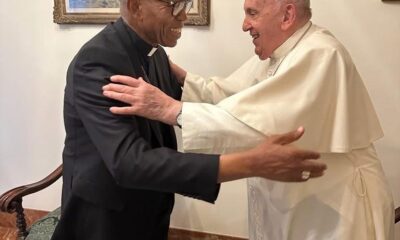

VATICAN PUBLISHES PROGRAMS FOR NINE DAYS MOURNING OF POPE FRANCIS


Jude Okoye released after 2 months in jail
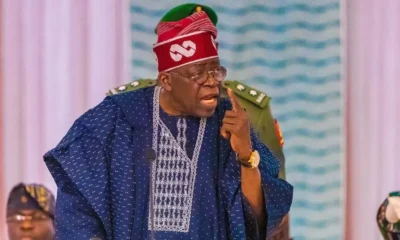

Killings: Enough is enough – Tinubu issues marching order to NSA, Service Chiefs
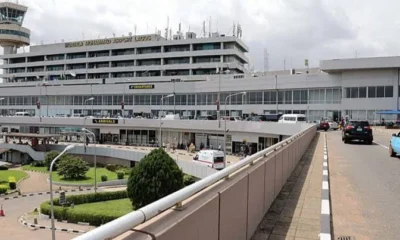

Flight disruption imminent over NiMet workers’ strike


This Gallant Police Officer Sh0t himself Dead at the residence of the VIP he was attached to In Portharcourt.
News
We have been unfairly blamed for insecurity in Imo State – IPOB
Published
6 hours agoon
April 24, 2025By
Ekwutos Blog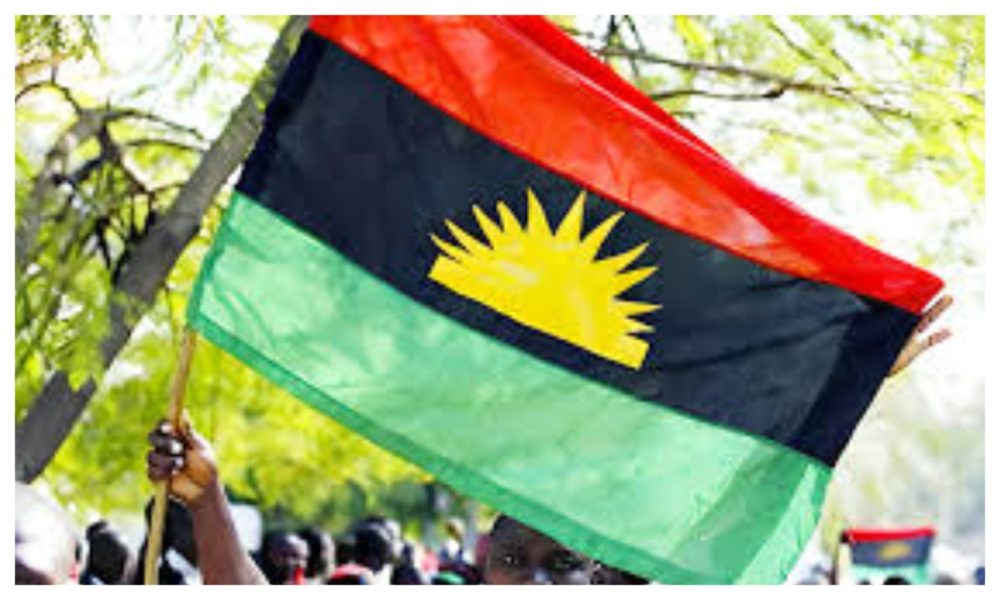
The Indigenous People of Biafra, IPOB, says it is being unfairly accused and blamed for insecurity plaguing Imo State, stressing that emerging information has vindicated its position.
This was contained in a statement by its Media and Publicity Secretary, Emma Powerful,
The group referred to a viral video in which an individual, allegedly known as “Gentle Yahoo,” claimed involvement in criminal activities in Imo State.
The statement said the individual made allegations about being influenced by certain actors with vested interests.
IPOB stated that the video supports its repeated denials of involvement in the insecurity in the region.
“We, the Indigenous People of Biafra, IPOB, once again assert that we are not responsible for the insecurity, kidnappings, or other criminal activities in Imo State.
“The video circulating online, which features a man identifying himself as part of a group previously involved in such activities, suggests attempts were made to implicate IPOB, the Eastern Security Network, ESN, and our leader Mazi Nnamdi Kanu,” IPOB said.
The group stressed that it has consistently communicated through official statements and broadcasts that its mission is peaceful and geared toward the advocacy for self-determination.
It also urged the public and media to exercise caution and conduct thorough investigations before attributing blame.
“We expect responsible media and public institutions to critically evaluate such claims and avoid hastily labeling IPOB or ESN in matters of regional insecurity,” the statement added.
IPOB called for transparency and accountability in governance and encouraged residents of Imo State to demand clarity and justice concerning the ongoing insecurity in their communities.
News
Dr. Kunle Adeniji’s body was found after kidnappers’ demand met
Published
7 hours agoon
April 24, 2025By
Ekwutos Blog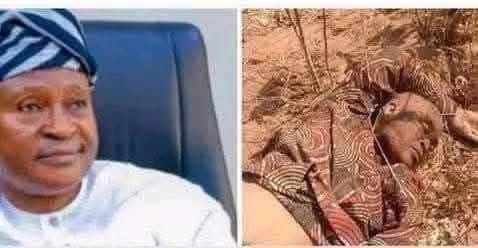
Sometime in February, Dr. Kunle Adeniji, a national director of the All Progressives Congress (APC), was kidnapped alongside his brother’s family in Abuja.
Despite the kidnappers collecting a ransom, Dr. Adeniji’s life was not spared.
According to reports, Dr. Adeniji was visiting his brother’s residence in the Chikakore area of Kubwa, Federal Capital Territory, when armed gunmen struck.
During the abduction, Dr. Adeniji’s brother’s wife, Esther, was shot and later dumped in a community in Niger State.
The kidnappers demanded a N350 million ransom from Dr. Adeniji’s family.
50 million naira ransom was reportedly paid.
However, in a heartbreaking twist, Dr. Adeniji’s body was found after the ransom was collected, indicating that he was killed by his captors.
The incident has raised concerns about the effectiveness of security measures in the country and the increasing brazenness of kidnappers.
Dr. Adeniji’s brother and son were kidnapped along with him but both survived the ordeal.
News
AGF assures probe of ex-NNPCL boss Mele Kyari over corruption allegations
Published
17 hours agoon
April 23, 2025By
Ekwutos Blog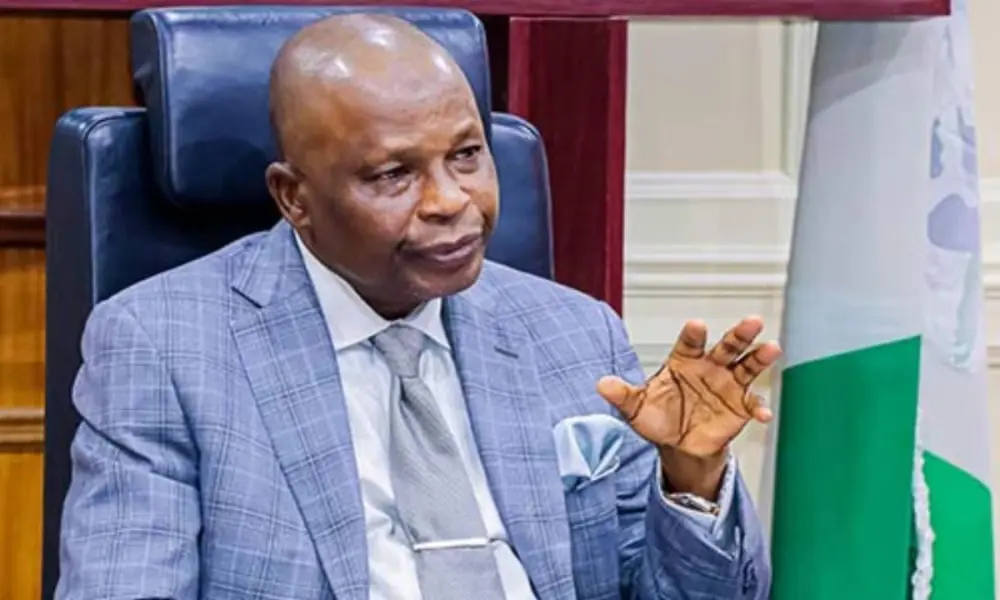
The Attorney General of the Federation, Lateef Fagbemi (SAN), has assured that former NNPCL Group CEO Mele Kyari will face investigation following petitions demanding his probe.
Speaking through Winifred Adekunle, a deputy director at the Ministry of Justice, Fagbemi promised that “whatever questions you have asked will be addressed appropriately” after lawyers from the “Guardians of Democracy and Rule of Law” marched to submit their April 23, 2025 petition.
Protesters under “Concerned Citizens Against Corruption” also staged a two-day demonstration at the AGF’s office, calling for Kyari’s immediate investigation over alleged mismanagement and opaque transactions during his five-year tenure.
The petition accuses Kyari of facilitating questionable refinery rehabilitation deals—highlighting a $400 million investment claim by Matrix Energy despite a $1.5 billion Federal Executive Council approval—and servicing a $2 billion debt through crude allocations.
The group urged the AGF to review all agreements under Kyari’s administration, launch a fact-finding investigation to quantify losses, and establish a commission of inquiry to recover misappropriated funds and ensure accountability.

US indicts Nigerian man for $690,000 fraud, lying to obtain American citizenship

VATICAN PUBLISHES PROGRAMS FOR NINE DAYS MOURNING OF POPE FRANCIS

Jude Okoye released after 2 months in jail
Trending

 Trending6 months ago
Trending6 months agoNYA demands release of ‘abducted’ Imo chairman, preaches good governance
- Business6 months ago
US court acquits Air Peace boss, slams Mayfield $4000 fine

 Politics6 months ago
Politics6 months agoMexico’s new president causes concern just weeks before the US elections
- Entertainment6 months ago
Bobrisky transferred from Immigration to FCID, spends night behind bars
- Entertainment6 months ago
Bobrisky falls ill in police custody, rushed to hospital

 Politics6 months ago
Politics6 months agoRussia bans imports of agro-products from Kazakhstan after refusal to join BRICS

 Politics6 months ago
Politics6 months agoPutin invites 20 world leaders
- Politics1 year ago
Nigerian Senate passes Bill seeking the establishment of the South East Development Commission.

